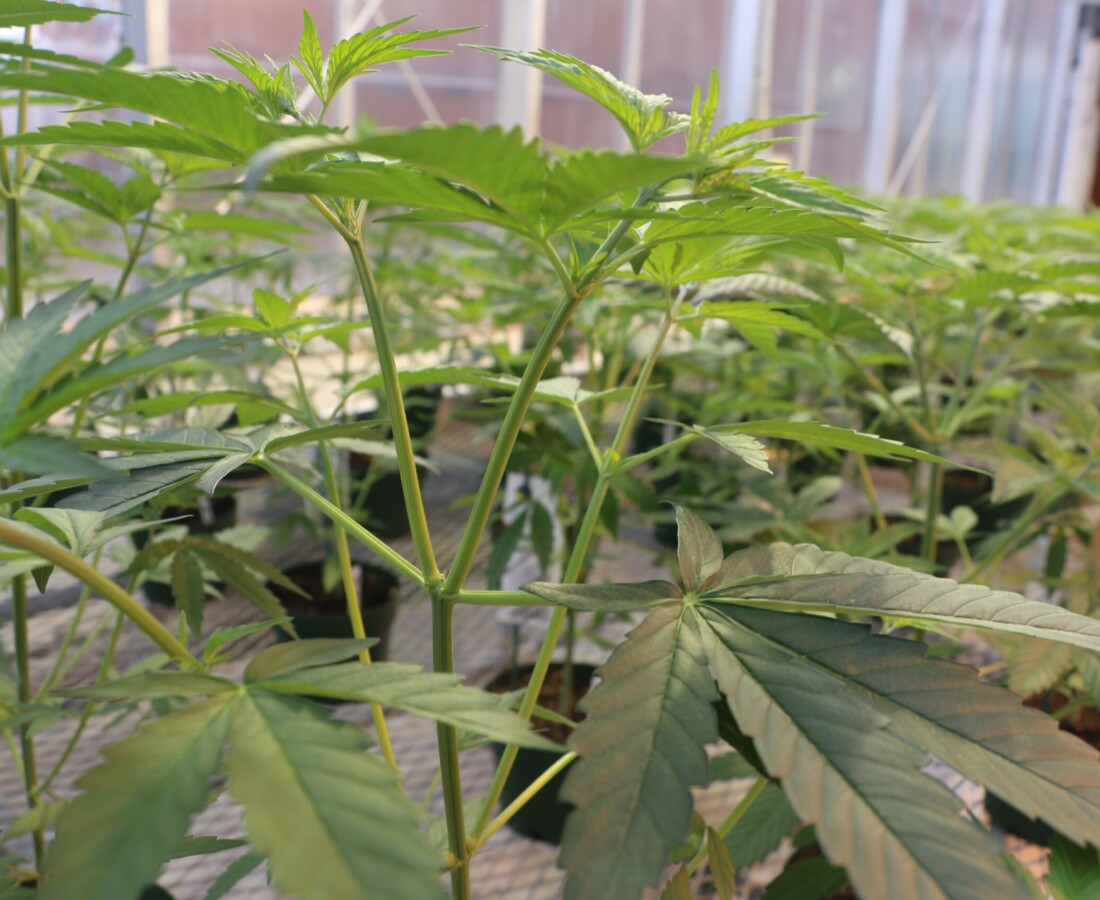Gyan Devi suffered from debilitating migraines that traditional medicine couldn’t treat effectively.
She experienced serotonin poisoning and reversible cerebral vasoconstriction syndrome (RCVS), a disease characterized by a weeks-long course of thunderclap headaches, sometimes focal neurologic signs and occasionally seizures. Her condition left her sick in bed for days at a time and even in a coma.
Devi, a professional aroma-herbalist who owns Body Botanicals, a health and beauty business, eventually turned to cannabis for healing.
“Cannabis saved me,” says Devi, who recently completed the UVM Cannabis Science and Medicine Professional Certificate. “I used to be in bed 28 days a month with a migraine. These last 12 months, it’s only been three days.”
Her positive experience with cannabis is hardly unique. In fact, according to a 2016 study at the University of Colorado, 121 people who experienced frequent migraines used marijuana daily to prevent attacks. About 40 percent of them said the number of migraine headaches they got each month was cut in half.
A Path to Wellness with Medical Cannabis Training
Devi launched Body Botanicals in 1995 to help others benefit from organic, locally sourced, Vermont products. After taking a break, Devi recently relaunched her business and now offers a CannaBliss line that contains CBD.
As Devi was planning to relaunch her business, she turned to the UVM Cannabis Science and Medicine Professional Certificate to learn more. The certificate is an online, seven-week program that covers cannabis history, business, law and policy, plant biology, biological effects on humans, production and safety, pharmacology, and clinical research.
“It was a great program, especially as an herbalist because they addressed everything about cannabis—botany, extraction methods, processes, the chemistry of the plant, and pharmacology,” she says. “I got to learn how cannabis works in the body, the differences in dosing, side effects, and what the research is showing.”
Devi, who describes herself as an active proponent of cannabis medicine and CBD, says she wanted to understand the cannabis plant intimately, as well as its applications and dosing.
She highly recommends the UVM medical cannabis training program, adding that as CBD shops and dispensaries are becoming increasingly common, more training is needed.
“When I went to a dispensary after my neurologist recommended cannabis, the person behind the counter couldn’t tell me anything. They didn’t have medical knowledge—all they could tell me is what strains of the plant were offered,” she says. “But I’m a patient and I want these people to talk to me like a patient. I want to talk about pain, nausea, insomnia, and side effects.”
She not only hopes that more CBD and health care professionals will turn to UVM for training, but also that cannabis will become more mainstream.
“The UVM program informed me on how to work with clients and how to better understand and work with their needs,” she says. “My hope for the future is that cannabis will move from this outlaw image and be honored as the strong, medicinal plant that it is.”




